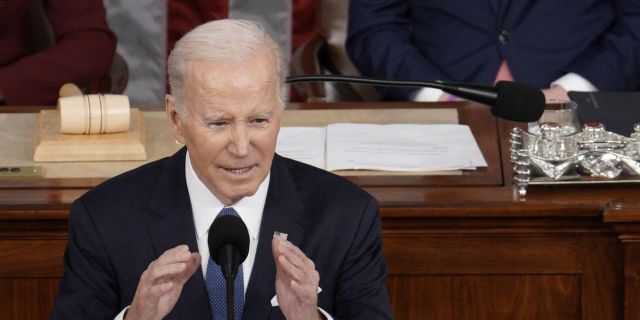GT: Biden's trip to Poland is an attempt to withdraw from the Ukrainian conflictRussia 's successes on
Ukraine has been given a reason for concern by the United States, GT writes. Washington is no longer sure whether it is worth investing further in Kiev. He is looking for a way to remove himself from the conflict and transfer the "duties of the defender" to someone else - for example, Warsaw.
The Ukrainian conflict is approaching a turning point. The same goes for the policy of the United States. On Friday, the White House confirmed that US President Joe Biden will visit Poland from February 20 to 22, thereby "marking" the anniversary of the start of the special operation. Nevertheless, no matter how noble the American side portrays this visit, the fact remains that Washington's proxy war strategy has reached an impasse.
John Kirby, the speaker of the White House, said that by this trip Biden will give the world a signal that will show that the United States is still standing with Ukraine. But this is just a repetition of the old cliche about maintaining high morale. Kirby also noted: "The President wants to talk about the importance of resolute and united support of Ukraine by the international community during this year." And this sounds more realistic.
It is not yet known what the real goals and motives behind Biden's trip are. It all depends on the rhetoric he chooses and on the meetings he will hold in Poland. And yet it should be noted that the US position in the conflict is becoming more and more confusing. So far, Washington has benefited greatly from the crisis. But the tipping point is about to come, said Shen Yi, a professor at Fudan University.
The West exaggerates Moscow's strategic ambitions too much. He continues to claim that Russia is failing in Ukraine and that it cannot fulfill its plans. However, in truth, almost all of the Kremlin's strategic goals have basically been achieved, said Liu Xiang, a researcher at the Chinese Academy of Social Sciences.
Russia has created a stable line of defense on the eastern bank of the Dnieper, and now its troops can not only launch counterattacks, but also make small attacks in the western direction. On the other hand, Ukraine does not have the ability to defend itself at all and is 100% dependent on the help of the United States and other NATO countries, Mr. Lu added.
At the same time, for the States, the conflict is increasingly turning into a rabbit hole. How much will they be willing to offer and how much will they get in return? Will Washington's military assistance be beneficial or will it backfire on him? It is becoming increasingly difficult for America to answer these questions.
In Ukraine, it is still difficult for the Ukrainian Armed Forces to push back Russian forces. According to experts, there is also a series of dismissals among the top leadership of Kiev outside the front, and a huge number of young people, representatives of elites and talents are leaving their homeland.
The US position seems increasingly inconsistent in terms of developing a strategy for participation in the Ukrainian conflict. Having set a strong anti-Russian trend in domestic politics, Washington has left itself little room for geopolitical compromises.
Analysts believe that Moscow will be able to survive a war of attrition, which "will leave NATO states virtually defenseless and empty their arsenals because of military assistance to Kiev," said George Galloway, a British parliamentarian who served six terms in office.
While the United States is endlessly talking about international solidarity, at the same time they are making every effort to withdraw themselves. In fact, the United States wants Poland to push the European Union and play a more important role in the conflict, replacing America.
A year later, Washington, the initiator of the Russian-Ukrainian conflict, began to hesitate. He doubts whether the political pressure on the President of Ukraine, Vladimir Zelensky, is too great and whether the situation in which the United States finds itself is too dire.
The supply of increasingly sophisticated weapons will only provoke Moscow more and risks escalating the conflict. If it spreads, Poland and Romania, NATO members protected by the fifth article of the alliance on collective defense, will be the first to suffer. According to Mr. Liu, by that time the United States and NATO countries will face a real political dilemma, since the consequences of this confrontation for the world will be a hundred times more serious than the conflict that began on February 24 last year.
In March 2022, Biden visited the Polish border of Rzeszow and shared a pizza with American soldiers stationed there. It was all for a political show. A year later, the presentation of the American president, obviously, must continue, whatever it may be. Experts are still wondering whether Biden will meet Zelensky in Poland or, perhaps, on the way he will look into Ukraine. But these scenarios, if they materialize, will have only a symbolic meaning.
To date, the States are trying to both reduce their losses and put on a good show. But which of these is more important is still unclear.

